Strategies for Improving Staff Wellness in Early Childhood Settings
VerifiedAdded on 2022/11/12
|9
|699
|469
Presentation
AI Summary
This presentation focuses on the wellness of early childhood educators, recognizing its critical role in providing quality care. It identifies key issues impacting educators, such as job-related stress from high demands and low wages. The presentation explores the negative implications of these issues, including decreased job satisfaction and high turnover rates. It then outlines practical strategies for improvement, including workshops on behavior management and stress reduction, enhanced communication with parents, and advocating for fair compensation. The presentation emphasizes the crucial role of leaders and advocates in supporting staff wellbeing through open communication and regular check-ins, fostering a supportive environment to reduce stress and improve overall job satisfaction. References to relevant research and literature are provided to support the presented arguments.
1 out of 9
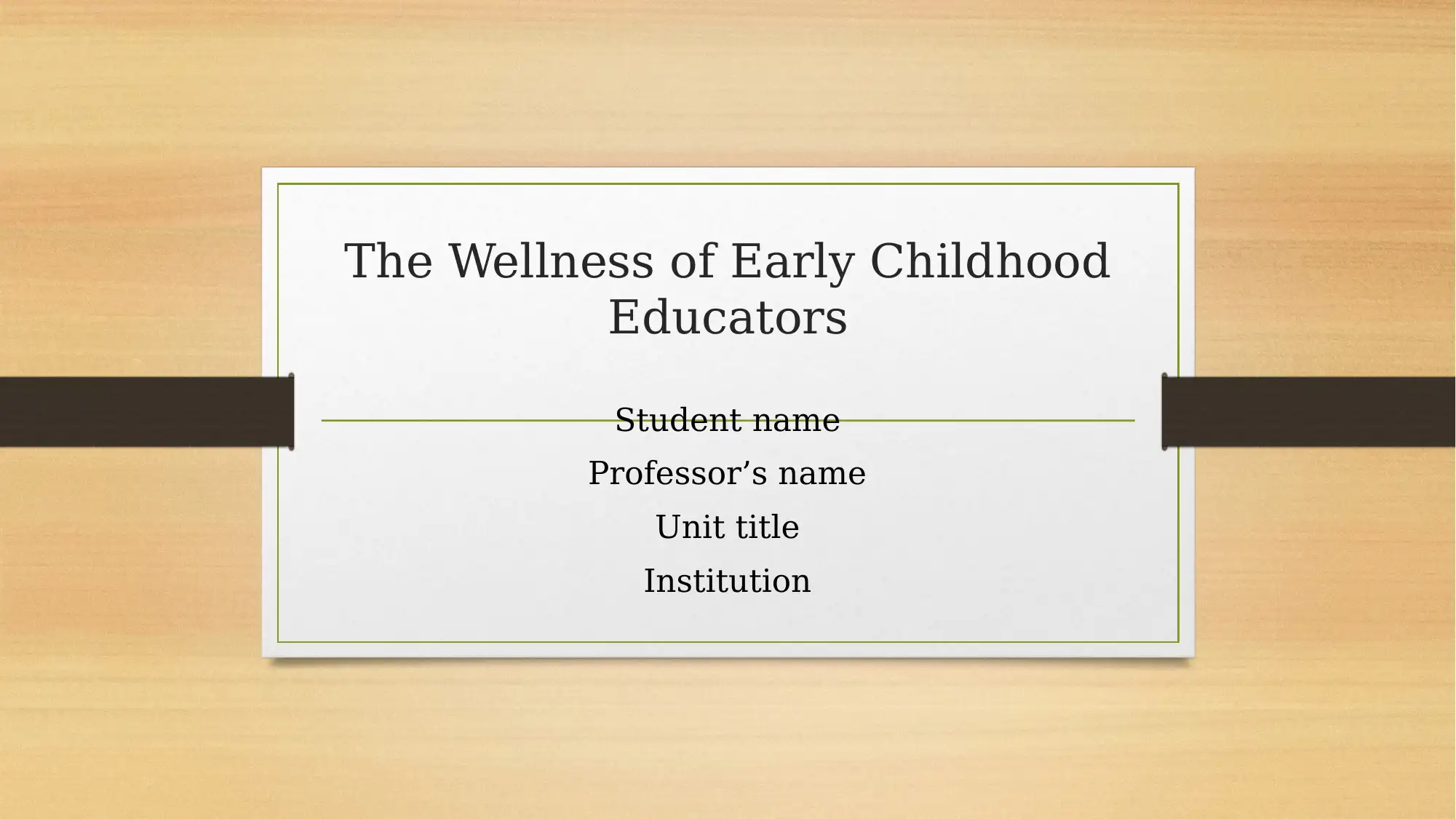
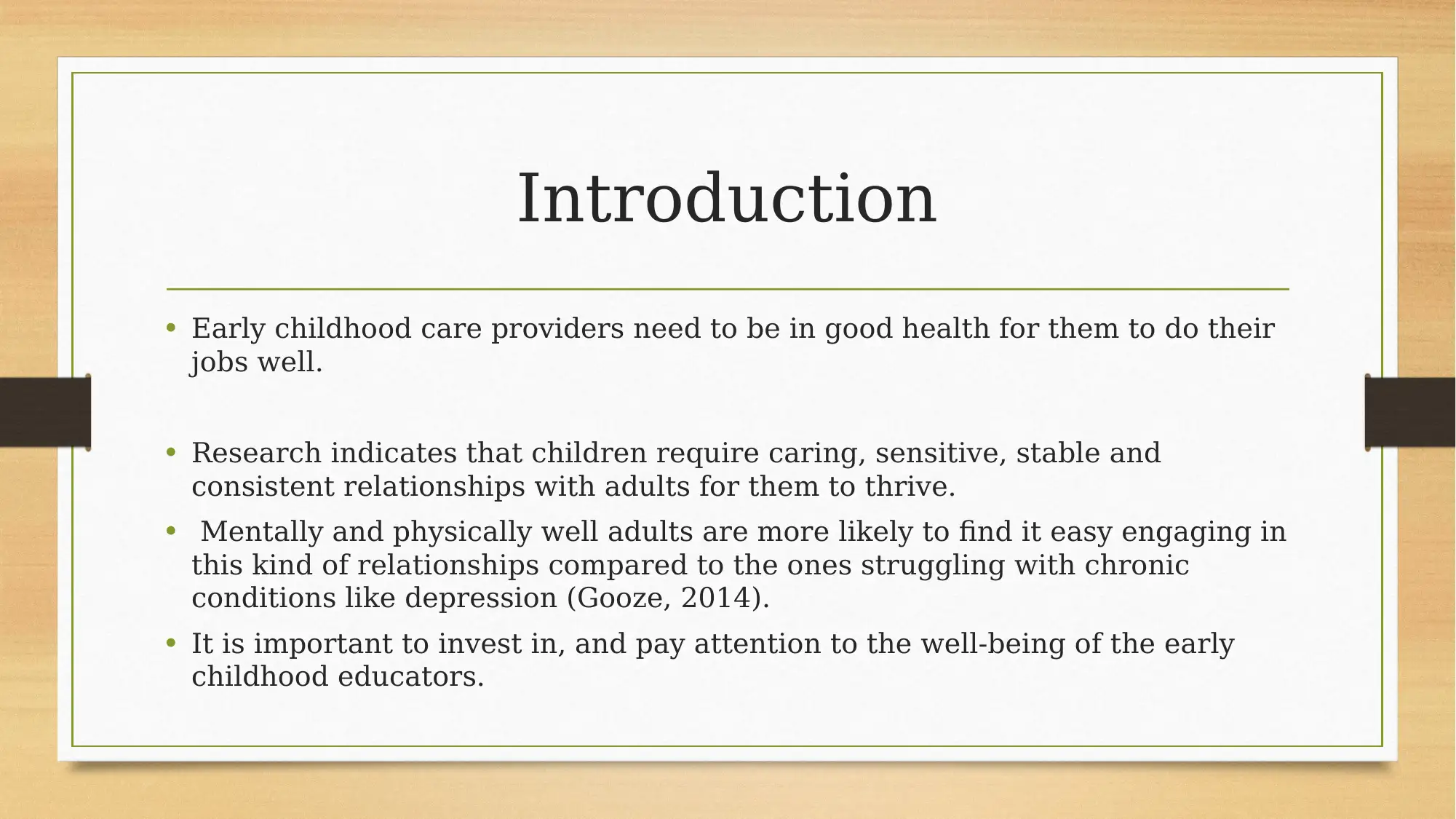
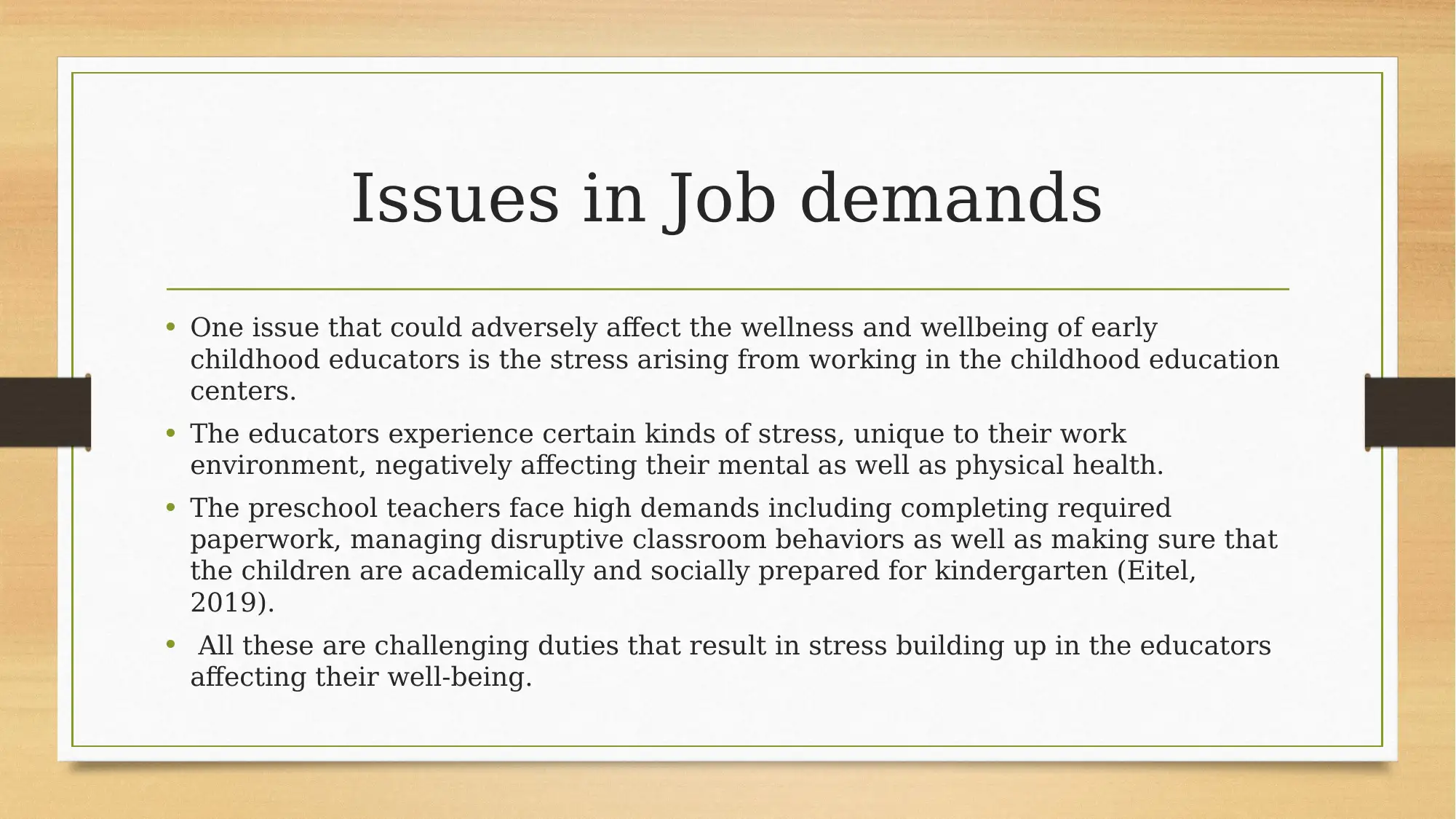

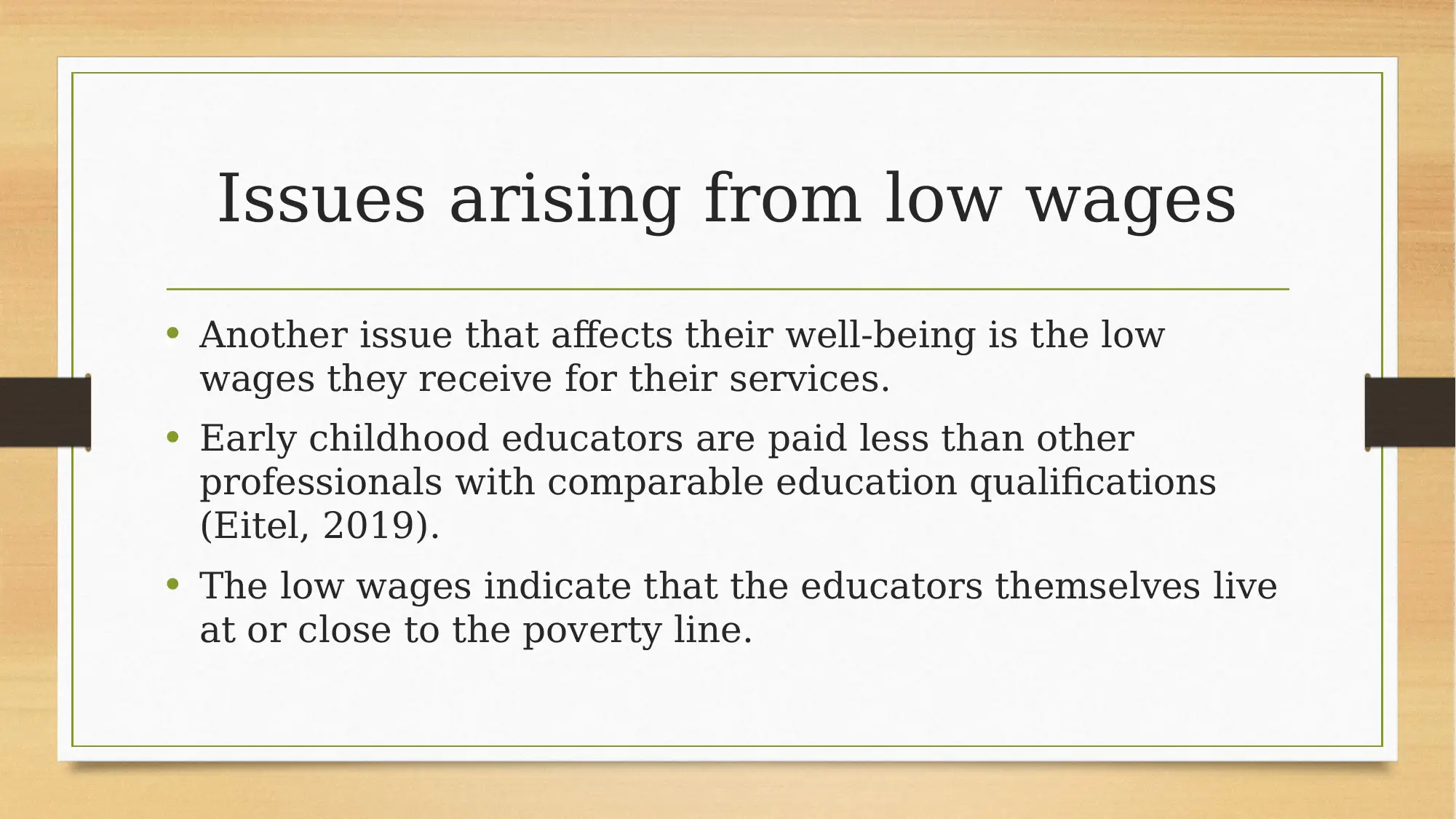
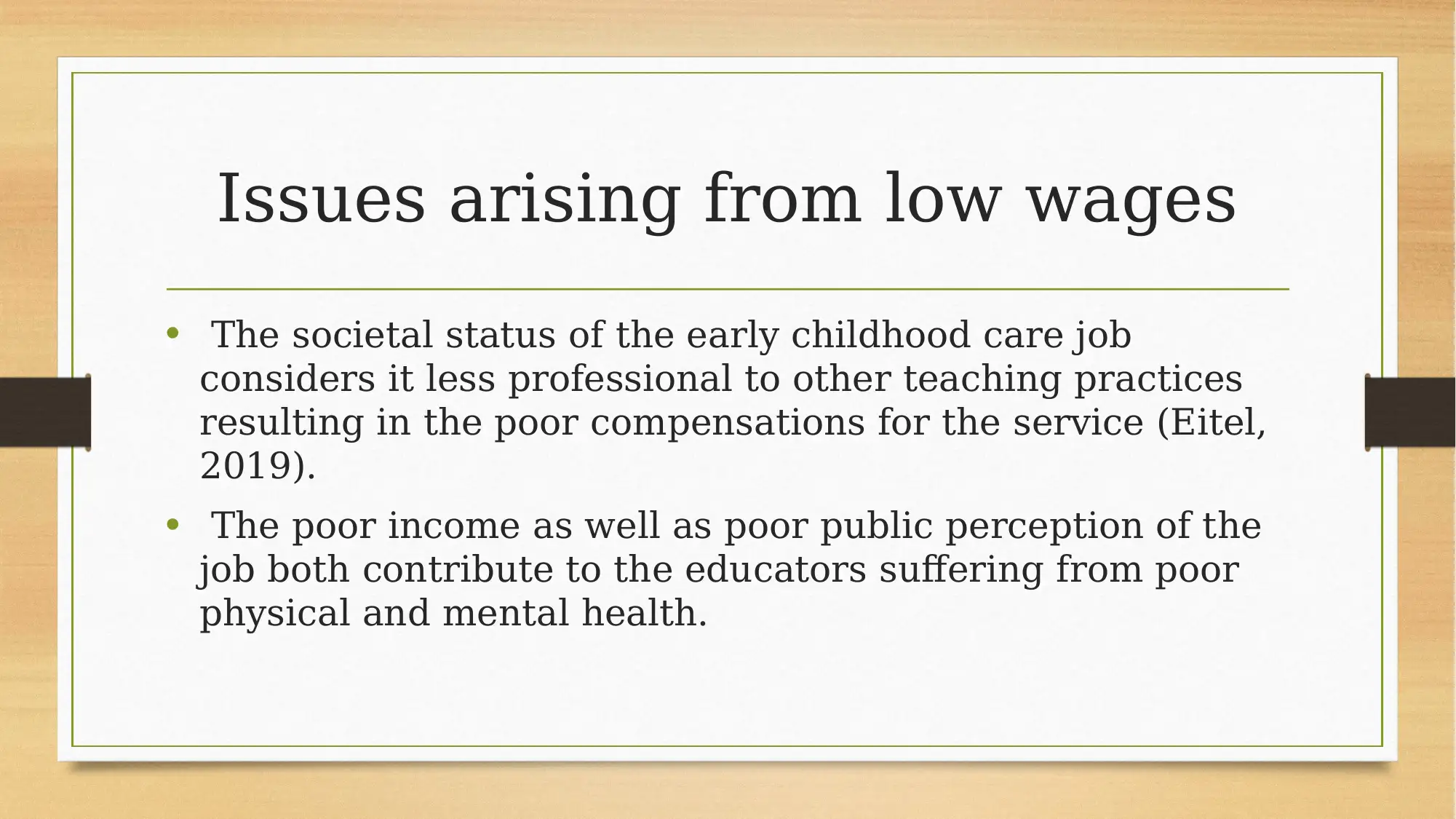
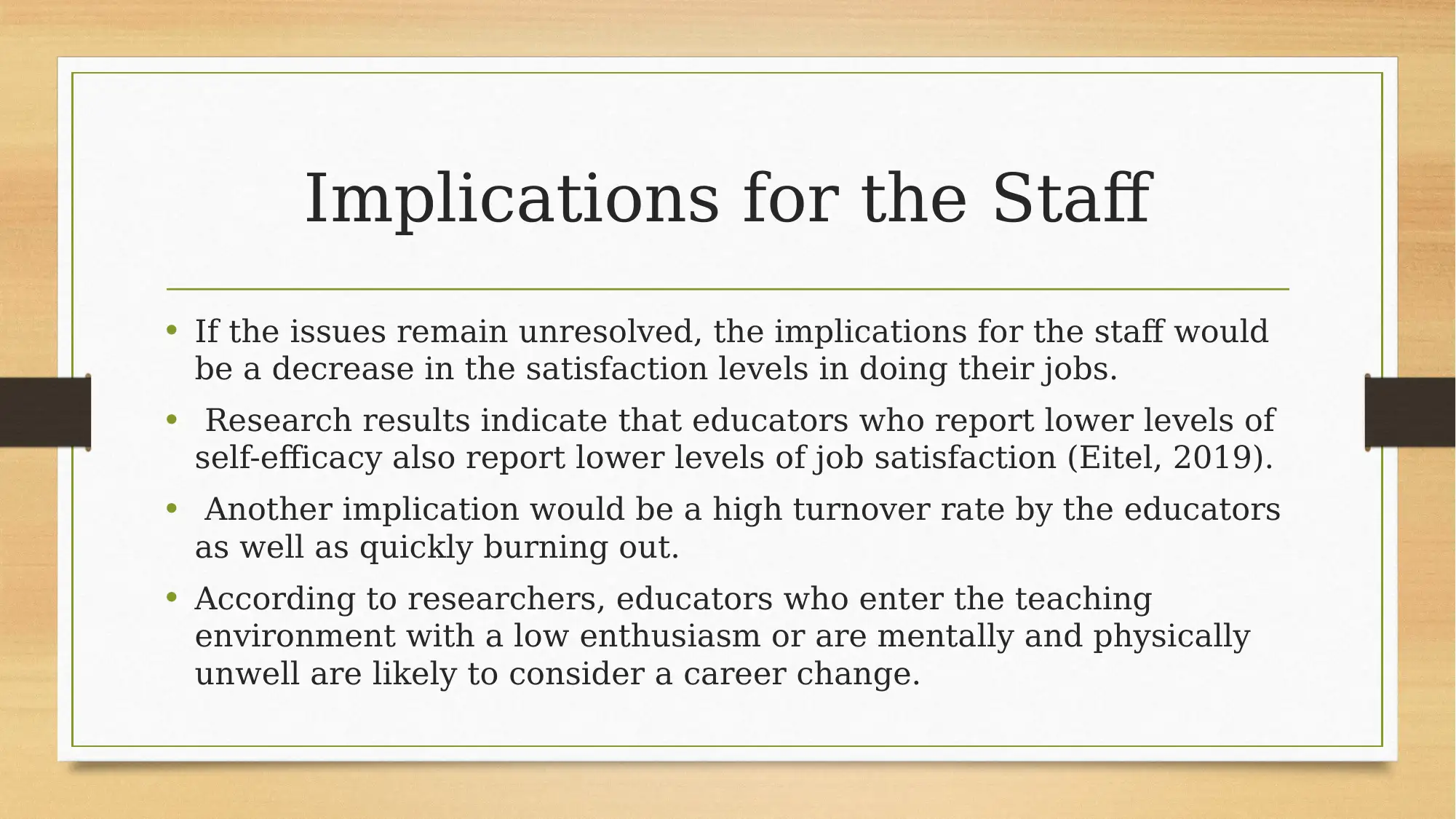
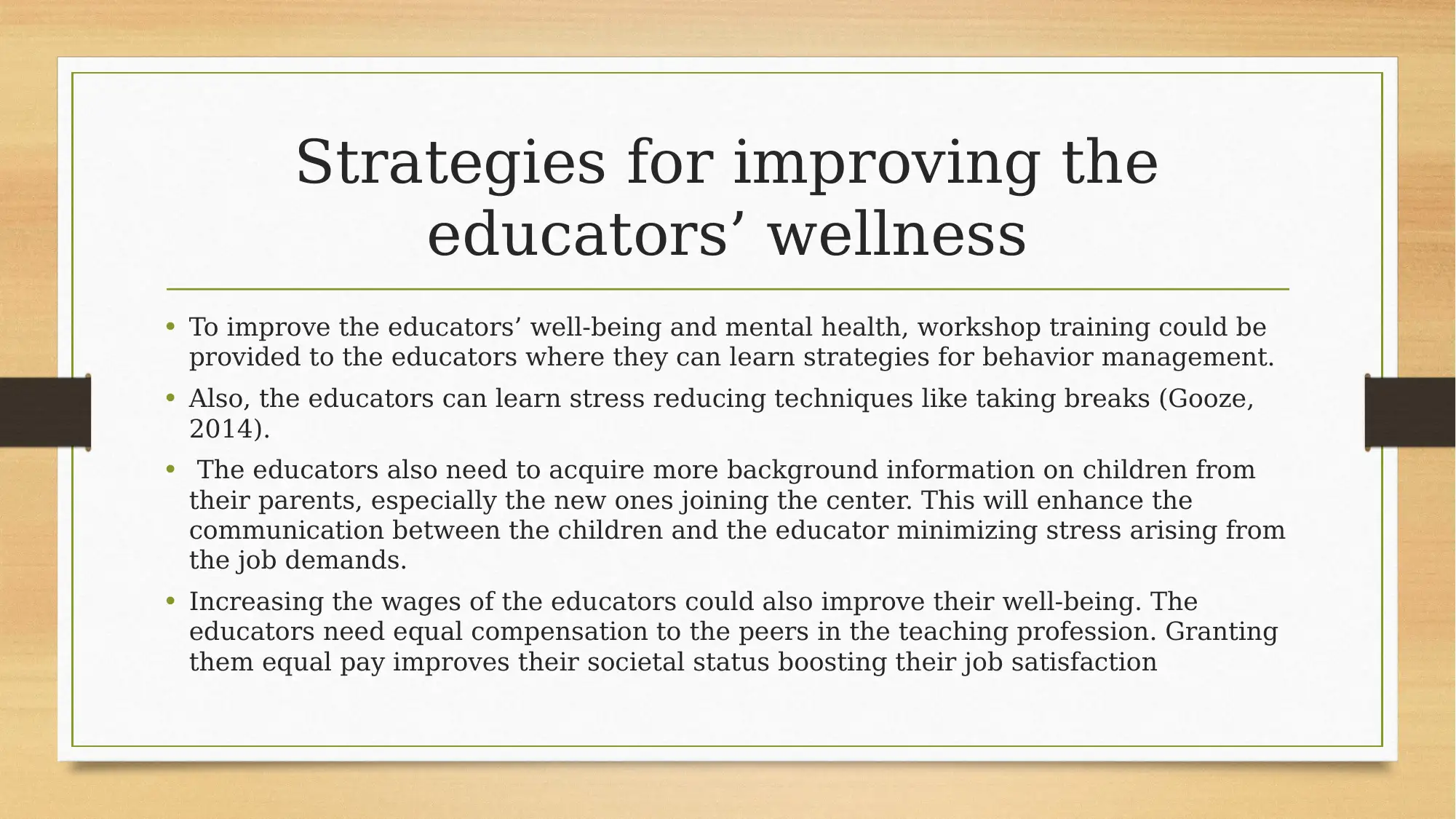
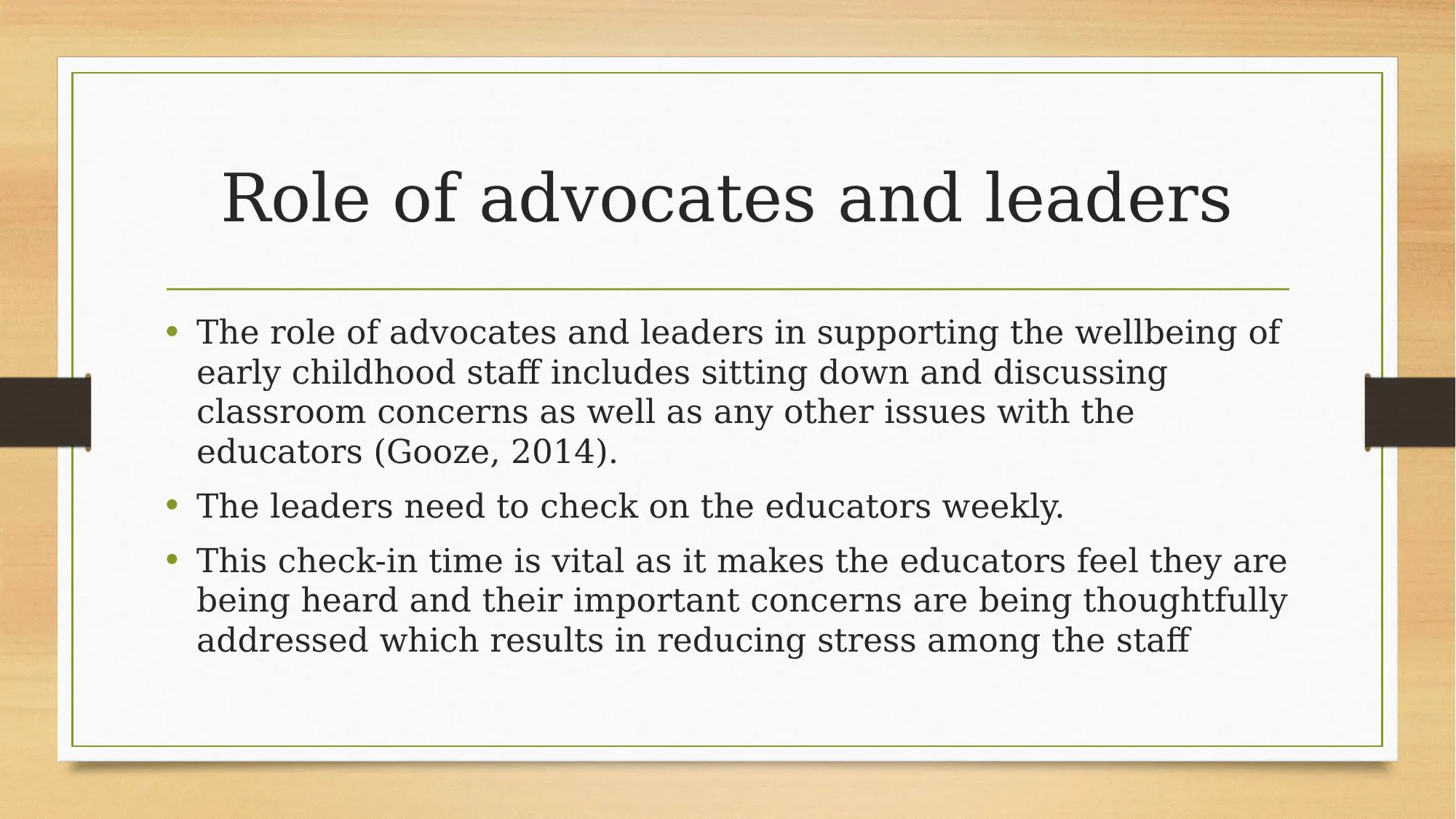
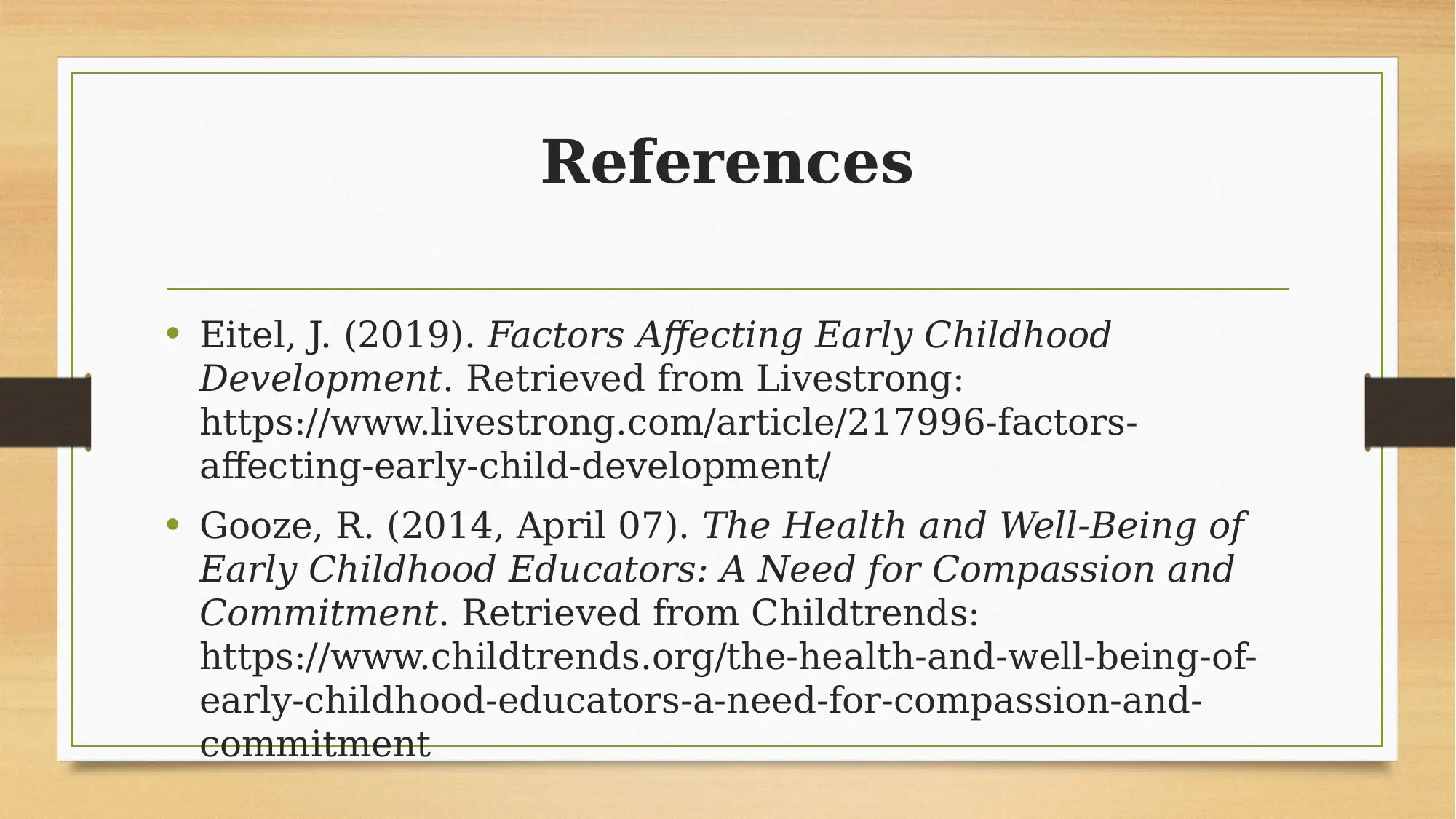





![[object Object]](/_next/static/media/star-bottom.7253800d.svg)